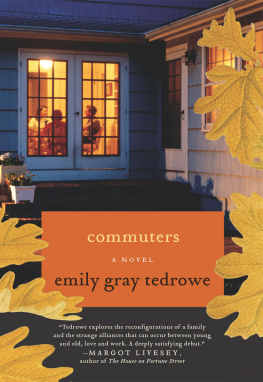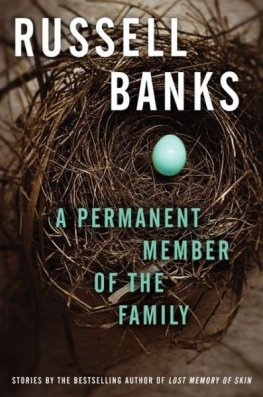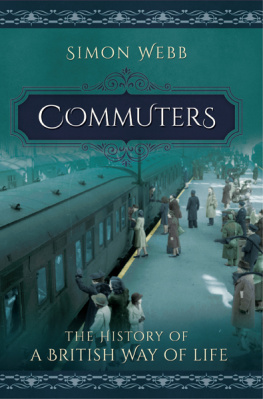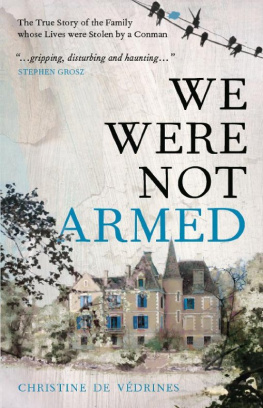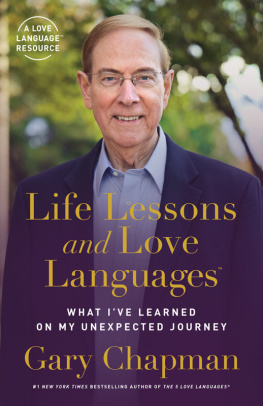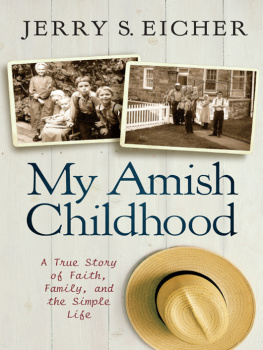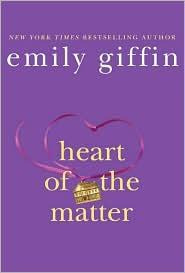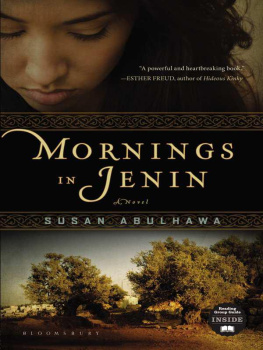It was a small-town June wedding, and the bride was seventy-eight.
From the church balcony where she sat alone, Winnie could see how it all looked, without her: rows and rows of dark wood pews, the flutter and ripple of the guests who filled them, twin thumb-sized bursts of yellow and white gladiolas set before the altar. She was supposed to be downstairs, in a small lounge off the vestibule; it was the place young children were rushed to when their fussing threatened to interrupt the service. She should have been admiring herself in the mirror, in this tea-length wedding gown of cream silk; she should have been conserving energy. But her face was as fixed as it would ever be, and she couldnt rest anymore.
It seemed there was something she needed to know, something she could only discover from this vantage point, so Winifred Easton McClellandsoon to be Trevishad slowly climbed the stone stairs and found her way to a front-row seat, above the place where the ceremony was about to begin.
Sixty years ago, she had stood in the foyer of this same church, in an itchy, off-the-rack suit. It was a modest Wednesday morning wedding; it matched everything about marrying steady, quiet, reliable George, her first husband. Winnies father had been uncharacteristically distant and preoccupied, on that windy November day, as they waited together for their musical cue. But he had a lot on his mind, as Hartfields station manager. Those trains dont run themselves, he used to say. Or was he worried about what this was costing him? She had tried to find something they could talk about, together in the chilly hall.
You dont have to, her father had said abruptly, staring at a spot above her head. A wife doesnt, I mean. Every night. Even if he wants to.
Well. Winnie now felt a slow flush of heat rise within her, right there in the First Presbyterian balcony. No one was around to give her such advice now, nor did she need it. She thought of Jerry Trevis, her Jerry, and the way he would touch herthe anticipation was part of the pleasure. She knew enough from their few evenings alone together, to guess how their bodies would join and respond to each other: with a lively ease, with recognition. No, she wasnt at all the same bride that she had been, on the day her father gave his wedding-night counsel.
Is that why she was sitting all the way up here, alone? Winnie wondered what she could discover, given a clear line of sight and a moments reflection. What was different, what had changed, in the years between that first wedding and today.
The shoes, for one thingor her ability to choose them. Winnie raised one foot and sighed, studying the compromise heel, which was a good inch and a half lower than that impossibly flimsy pair in which she had teetered for twenty minutes at Nordstrom, even as she knew what her daughter would make her buy instead: something expensive, subdued, sturdy. Old-lady shoes. On my wedding day.
Nor did she have illusions about the sentimentality of this occasion, those unnecessary details that probably most of the guestsand some from her own family, evenwould see as trivial or self-indulgent. Winnie didnt need all this: the ring, the dress (but oh, she loved how she looked in this dress), the lavish reception to come. She knew how it looked. Winnies social circle was composed mostly of other long-time widows, and there was a history of light jokes about the phenomenon of two older people coming together late in life. She knew all the usual arrangements, all the wink-and-nudge euphemismsthose companions or special friends. Why bother with anything formal, anything official?
But when a man like Jerry Trevis said he wanted to get married, he meant married . He hadnt moved to tiny Hartfield from Chicago for anything else. And there was this; Winnie ran her palm across the smooth surface of her dress. The truth was, she wanted this day toothe pomp and show of it, the public display. She had married once because it was a good match, mostly for her parents and his; that was how things were done, and she hadnt argued with it. But now she found herself about to do something that felt like the first thing shed ever done on her own. And maybe that called for a lot of witnesses, the gratuitous flowers, a tiered and too-sweet cake.
She was marrying a man for the delicious and wicked and simple reason that she wanted to.
Not that everyone saw it that way. Earlier in the day, Winnie and Jerry had posed together for a photograph on the sloping lawn in front of the church, next to the welcome signboard where their own names were spelled out in white plastic letters, below todays date. (Above that, for the morning wedding, another couples names were listed, which only slightly ruined the effect.) For the occasion, Winnie had agreed to be interviewed by a reporter from the local papershe often was, a frequent obligation, part of her role as the daughter of what many considered to be the towns founder, the man who had linked little Hartfield to New York City. Dutifully, she gave her quotes when asked, and had learned not to argue with young peoples fascination with the pastespecially those awful railroad aficionados. Relentless. But she had hoped for more, this time. She wanted to explain what it was like, meeting Jerry just three months ago. How she had never expected to be in love again, and what it took to upend your placid and settled life: the one you led with dignity, the one people expected of you.
At times, what I feel is closer to regret than anything else, Winnie had told the reporter. Maybe thats inevitable. After all, most of my life will have been spent without Jerry, and getting married now keeps bringing that to mind. So then all this happiness actually
Yes, the polite reporter said, nodding. Her pen hovered over the pad, unmoving. So interesting. Can you tell me exactly how old Mr. Trevis is? And confirm your birth date?
And so, little by little, there on the soft church lawn, Winnie discovered the reporters agenda: a fluff piece, a throwaway. Something to warm the heart. She and Jerry were meant to be a symbolof hope springing eternal, and all that. How could it be otherwise? She and Jerry couldnt be themselves; they had to be much bigger than that. They were the human interest .
Below her, most of the guests had been seated by now, although there was the usual waving and rearranging of places as people called to each other and organized themselves. The front of the church, though, by the altar, was still empty. Jerry and the minister would enter from one of the side doorsif she saw that happen, Winnie thought, shed really have to hustle down there. Still, she sat and watched.
That ministera nice young man. About thirty-five, maybe forty. Nervous and a little overeager, hed met with them a few weeks ago to discuss the order of the ceremony: what hymns, in which order, and who would do the readings. At one point, though, she couldnt understand what he was going on abouthe was explaining something quite earnestly, with grave import. Finally she gathered that the minister was letting them know that the phrase promise to obey was now commonly omitted from the vows, and the various reasons, and so on. He seemed quite intent on the point. And he was a little disconcerted when Winnie couldnt help a short burst of laughter, Jerrys hand in hers. She understood the changing politics that made this seem necessary, to a younger person. But what did this minister think he was protecting her from? She had no qualms about promising to obey Jerry. In any case, so much of marriage was unspoken, was made up of two people striving for kindness and respect, in a countless series of actions and gestures, day in and day out. It was touching, the way the minister wanted to get these mere words right. Well, all right, she had told him. If it makes you feel more comfortable.

